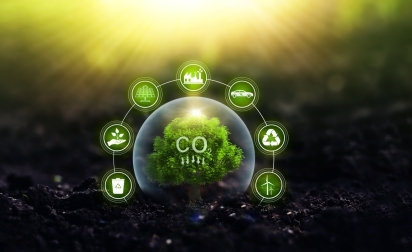Climate emergency in times of confrontation
Antxon Olabe: "The response to the planetary climate emergency is the decisive struggle of our time"

"The climate emergency is the element that is going to define our generation, our time, because, if it is not redirected, it is something that can destabilize the bases that sustain the processes of life on Earth". This was the categorical statement made by the environmental economist and essayist Antxon Olabe in his talk "Climate emergency in times of confrontation", as part of the conference program of the Donostia Sustainability Forum. "The climate is a main beam that supports life and human societies and it has already begun to wobble. Alarm bells should be ringing in every government in the world" he added.
Antxon Olabe has extensive experience in the field of environmental consulting. He has advised the Ministry for Ecological Transition and coordinated the team in charge of the elaboration of the National Integrated Energy and Climate Plan 2021-2030 that the Government has submitted to the European Commission. In addition, he has led the team in charge of the elaboration of the Long Term Decarbonization Strategy 2050, submitted to the European Commission and the United Nations. He has recently published the essay "Necesidad de una política de la Tierra. Climate emergency in times of confrontation", in which he analyzes the consequences of the collision with the planetary ecological limits and reflects on the transition that humanity must consider towards a new relationship with the Earth system.
To understand the current moment in the action against climate change, Antxon Olabe focused on the idea of confrontation. Science has explained the causes of the climate crisis, its consequences and its dynamics. "But it is one thing to understand the problem and another thing to implement solutions. We are moving from the realm of scientific knowledge to the realm of politics and geopolitics, and there more variables come into play. That is why it is costing so much to correct the trajectory of global greenhouse gas emissions, because the economy, power and interests of each country come into play. We are in a time of geopolitical confrontation, very marked since 2017 by the confrontation between the two giants: United States and China, that they understood each other previously made the success of the Paris Agreement possible" he explained. According to Antxon Olabe, the current moment is less favorable due to the tension in relations between the two countries.
In this context of confrontation, in which we must also introduce the Russian invasion of Ukraine and the energy crisis it has entailed, there is a positive aspect, explained Antxon Olabe: "We have seen that dependence on oil and gas exports from other countries is a strategic weakness. Promoting energy sovereignty is a very important argument for accelerating the transition to renewable energies".
With regard to the international scene and the greater or lesser mobilization of countries around climate action, Antxon Olabe stressed that "there is no solution that does not involve a collaborative position on the part of China. It represents around 28% of global greenhouse gas emissions. It emits more than the US, India and the European Union combined, or similar. Its position in recent years has been rather contradictory. It has changed its position to respond to the climate crisis, it is the country that has invested the most in renewables, it has approved carbon neutrality by 2060, but that has not led to a decarbonization of its economy and it is finding it very difficult to adopt measures in the short term."
Contradictory is also often the response to the climate emergency from the United States, another major carbon emitter. "The party of Abraham Lincoln has abandoned us, it has given in to anti-science sectors that don't believe in the climate crisis," he explained. When the administration is in the hands of the Democratic Party, commitments are signed, but this type of policy cannot depend on who is governing, said Antxon Olabe.
The case of India is less well known because it is already the most populated country in the world, and its level of development is very low compared to the world average. "The big dilemma that India poses is that in the next 30 years it is going to need a huge development and modernization process. If it is based on coal, oil and gas, everything that we advance in the developed economies will be lost on the other side because a country of 1.5 billion people, if it reproduces the Chinese model, we will not be able to make the numbers. We will not be able to maintain a temperature increase of 2 degrees. Antxon Olabe insisted that it is necessary to collaborate with India so that India's development model is based on renewable energies, and they are already making a very strong commitment to photovoltaic energy.
Another of the powers he analyzed in his conference was Russia, a key player in the fossil energy system. "Sad to say, but Russia cannot be counted on for a climate solution," he said. Regarding the EU, Antxón Olabe stressed that it is the only economy that has been developing decarbonization for 30 years. "We have decreased greenhouse gas emissions by 30% with sustained economic growth and the target is to continue decreasing to 55% by 2030. We are leading climate action "
Antxon Olabe finally stated that the response to the climate emergency "affects the political and moral core of our society, our values as a community of free men and women who not only live together, but share a common destiny, that is to say, the foundations of justice and equity on which our democratic societies are based. The 1.5 degree target is unwaivable. Tomorrow, our generation will be judged by the attitude with which we confront this existential threat."

